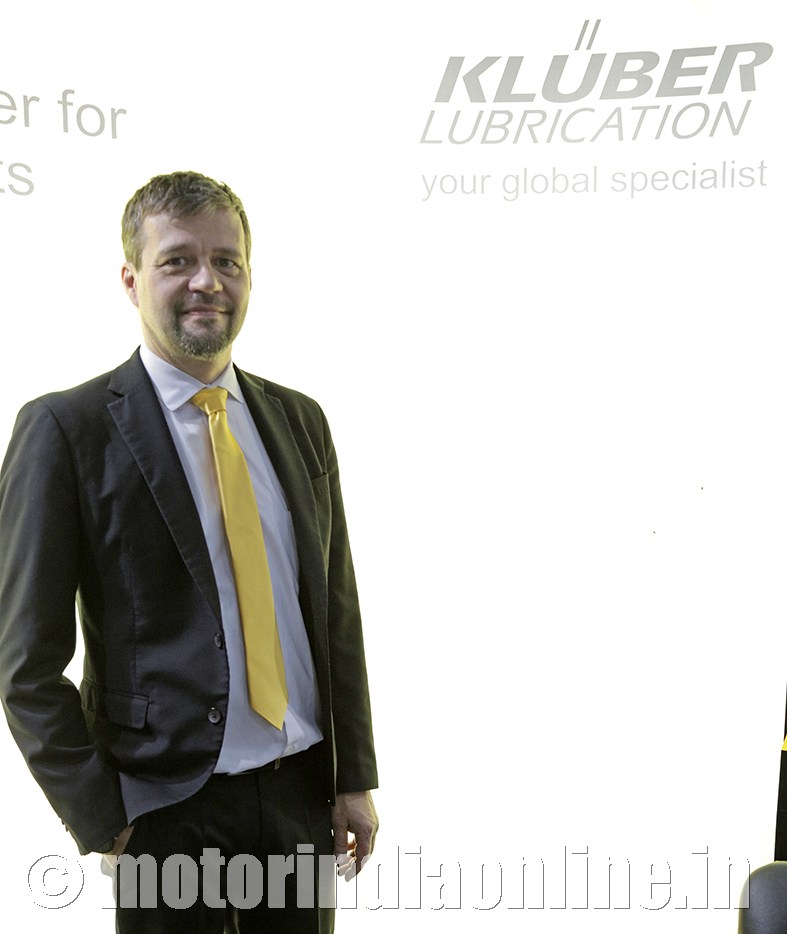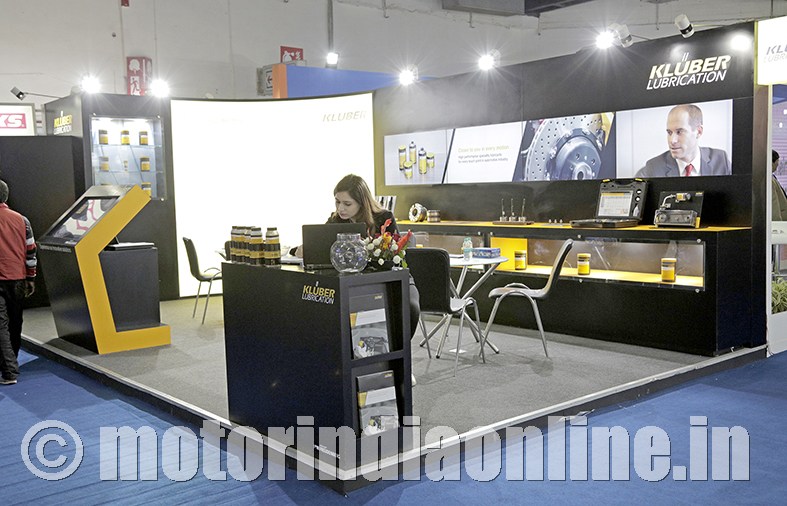Even if electric vehicles have a decade or so before they become a reality in India, the manufacturers of EVs and their components are already working towards sustainable solutions. Klueber Lubrication’s revolutionary hydro lubricants is one example.

Mr. Frank Werner, Head – Business Unit Automotive Industry, Klueber Lubrication, shared: “One of our major strategies is sustainability in both hand and foot prints. Our sustainability footprint is when we produce water-based lubricants while sustainability handprint is when the customers use them and face fewer issues with their disposal.”
Under certain conditions these water-based lubricants offer an advantageous feature known as the ‘super lubricity’, explained Mr. Werner: “These lubes are treated with chemicals for better load carrying capacities to mention just one advantage since they work in the transmission boxes. Super lubricity means extremely low coefficients of friction between steel surfaces which is interesting for electric vehicles. Low friction means fewer losses making the drive train more efficient, giving the user more range with less power consumption.”
The company’s hydro lubricants are still being introduced around the globe and their acceptance is subject to multiple cycles of testing and optimization cycles with OEMs across the globe.
He said: “The principle is to always understand the design philosophy of each OEM because they all want to possess a unique feature. It means there will be little differences in their designs and materials and they must be adapted by us before offering a solution. Also, another aspect is when you take totally different chemistry inside the gear box there are many parallel issues like compatibility and sealings which need to be taken care of in-depth.”
EVs present an interesting and unique case for Klueber because the vehicles offer something called the ‘range anxiety’, which simply is about how far an EV can go on one load of battery. Mr. Werner shared: “With EVs, recharging or reloading the battery is not as easy as it is with a conventional vehicle. These require diligent planning in one’s daily operations, and that’s what is subsumed under the range anxiety. Extending the range of EVs is currently a big topic around the world. And it should ideally be done using less energy and with less friction.”
He added that this is one skepticism among consumers which is proving to be one of the major setbacks in the sale of EVs around the world.
Though India presents an untapped and huge market for hydro lubricants, setting up a manufacturing plant here may still be a distant thought. He added: “We need to adapt our product according to the requirement of our Indian customers to have a reasonable relationship between cost and performance. And we wish to achieve it by increasingly developing and producing in India.”
But the core issue at hand for the Indian automotive sector currently is not the EVs but the move to BS 6 by 2020. And Klueber is ‘ready with a wide range of products’ to ease the transition.
Mr. Werner observed: “Components suitable for BS 6 engines need them to be more heat resistant because engines that emit less are hotter and they are more capsulated. This means that the components receive more stress. If lubes are needed inside these components, then the lubes will also receive more stress for which the right lubes alone can make things work.”
Klueber Lubricants is all set to smooth the way both in the present and in the future too.
